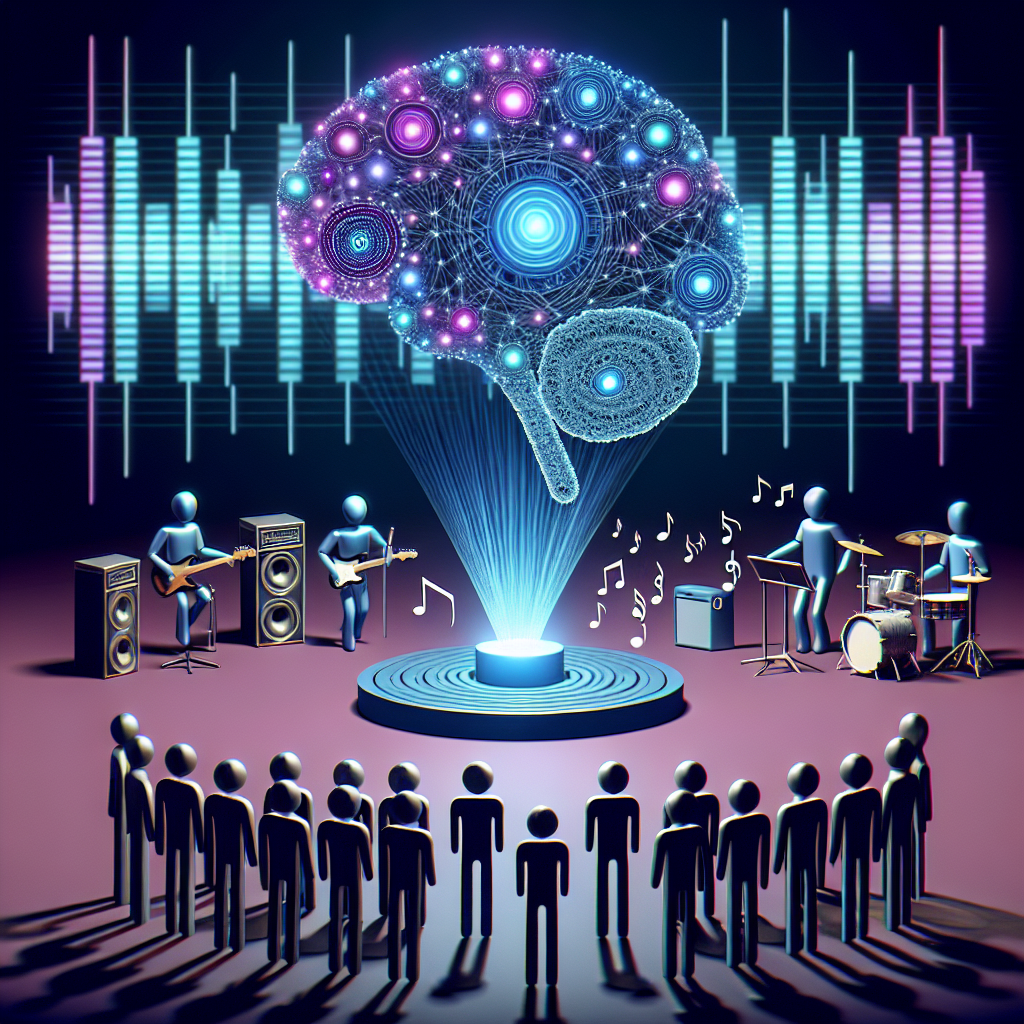In recent years, conversational AI has been making waves across various industries, including the music industry. From enhancing fan interaction to improving music discovery, conversational AI has the potential to revolutionize the way fans engage with their favorite artists and discover new music. In this article, we will explore how conversational AI is being used in the music industry, its benefits, and what the future holds for this technology.
Enhancing Fan Interaction
One of the key ways conversational AI is transforming the music industry is by enhancing fan interaction. Artists and music labels are leveraging chatbots and virtual assistants to engage with fans in a more personalized and interactive way. These AI-powered tools can answer fan queries, provide updates on new releases, and even offer exclusive content or promotions.
For example, many artists have implemented chatbots on their social media platforms or websites to interact with fans in real-time. Fans can ask questions about upcoming tours, album releases, or even just chat with their favorite artist. This level of direct engagement helps to strengthen the bond between artists and their fans, leading to increased loyalty and support.
Furthermore, conversational AI can also be used to gather valuable feedback from fans. Artists can use chatbots to conduct surveys, polls, or quizzes to better understand their audience’s preferences and tailor their music or marketing strategies accordingly. This data-driven approach can help artists to create more targeted and engaging content for their fans.
Music Discovery
Another significant impact of conversational AI in the music industry is its role in music discovery. With the vast amount of music available online, it can be overwhelming for fans to discover new artists or genres. Conversational AI can help streamline this process by offering personalized recommendations based on a fan’s listening habits, preferences, and even mood.
Streaming services like Spotify and Apple Music have integrated AI-powered recommendation engines that analyze a user’s listening history and behavior to suggest new music that they may enjoy. These recommendations are often delivered through chatbots or virtual assistants, making the discovery process more interactive and engaging for fans.
Additionally, conversational AI can also be used to create immersive music experiences for fans. Virtual assistants like Alexa or Google Assistant can curate personalized playlists, provide background information on artists, or even host virtual concerts or listening parties. This level of interactivity helps fans to connect with music on a deeper level and fosters a sense of community among music enthusiasts.
Future of Conversational AI in the Music Industry
As technology continues to evolve, the potential for conversational AI in the music industry is limitless. In the future, we can expect to see even more advanced AI-powered tools that offer personalized and tailored experiences for fans. For example, AI-powered virtual assistants may be able to analyze a fan’s voice or facial expressions to gauge their emotional response to music and recommend songs or artists accordingly.
Furthermore, conversational AI can also be used to create more immersive and interactive experiences for fans, such as virtual reality concerts or augmented reality music videos. These cutting-edge technologies have the potential to revolutionize the way fans engage with music and artists, blurring the lines between the physical and digital worlds.
Overall, conversational AI is poised to play a crucial role in shaping the future of the music industry, enhancing fan interaction, and driving music discovery. By leveraging AI-powered tools, artists and music labels can create more personalized and engaging experiences for their fans, leading to increased loyalty, support, and revenue.
FAQs
Q: How can artists implement conversational AI in their music marketing strategies?
A: Artists can implement conversational AI in their music marketing strategies by leveraging chatbots, virtual assistants, or AI-powered recommendation engines. These tools can help artists engage with fans in real-time, offer personalized recommendations, and gather valuable feedback to tailor their content and marketing efforts.
Q: What are some benefits of using conversational AI in the music industry?
A: Some benefits of using conversational AI in the music industry include enhanced fan interaction, improved music discovery, personalized recommendations, and data-driven insights. AI-powered tools can help artists connect with fans on a deeper level, offer immersive music experiences, and drive engagement and loyalty.
Q: How can fans benefit from conversational AI in the music industry?
A: Fans can benefit from conversational AI in the music industry by discovering new music, engaging with their favorite artists in a more personalized way, and accessing exclusive content or promotions. AI-powered tools can help fans connect with music on a deeper level, foster a sense of community, and enhance their overall music listening experience.

